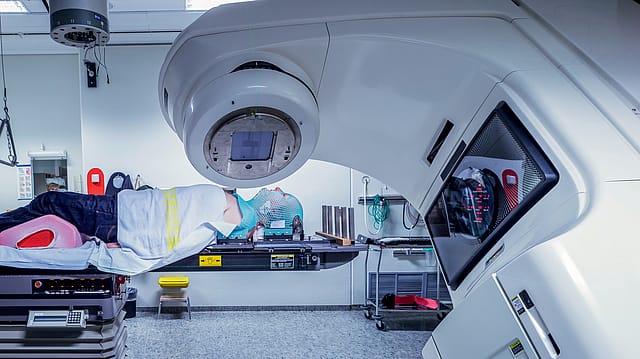How corporate CSR drives innovation at the grassroots
ADVERTISEMENT

The results of the 2023 Ramon Magsaysay Award were a source of great pride for all Indians. The honour was bestowed on oncologist Ravi Kannan, originally from Chennai, for his ground-breaking work on cancer in rural Assam. This global recognition of Dr. Kannan's intent and hard work tells us that the world is watching and acknowledging India's progress in the fields of medicine and healthcare.
It is a result of 70 years of investment in technological advancement and affordable last-mile delivery. As we embark on more capacity building initiatives, especially in the prevention and treatment of life-threatening diseases, we should also consider the value of strengthening our primary health care. Early detection and treatment lessen the burden on the country's healthcare infrastructure and save costs.
If India is the human body, primary healthcare services are its very lifeblood — the foundation that gives our country the vitality to achieve the impossible.
Uplifting the grassroots
Two-thirds of public resources in the health vertical are devoted to this form of care. It is with good reason: For our brothers and sisters in rural India or from the marginalised strata living in urban areas, the first port of call during times of sickness is the 1,30,000+ local Primary Health Centers (PHCs). It is within the four walls of these centers that they receive essential medicines and vaccines.
At a time when families spend their fortunes on private medical care, well-equipped, affordable, and responsive PHCs are vital to building trust in India's public health. They will encourage people to seek intervention at earlier stages, resulting in better outcomes and reduced financial strain. The private sector's initiative in building PHCs as part of their CSR budgets can be strategic to the nation's initiative to create quality healthcare facilities at a faster pace.
This form of care isn’t just the band-aid on the bruise; it is promotive and preventive. It relies on early detection to help us limit the progression of illness.
It is essential to battle increasing cases of lifestyle and chronic diseases like diabetes, high blood pressure, and eye ailments while reducing the strain on tertiary care centers. Through consistent care in managing health parameters, people can look forward to longer, happier lives — with fewer complications.
The power of collaboration
The story of India's fight against polio and universal immunisation demonstrates the power of efficient primary health care. This legacy is being taken forward through the Ayushman Bharat program and the National Health Policy.
Public-private partnerships that reflect the spirit of Ayushman Bharat can be a stepping stone to achieving universal health coverage — an emerging national priority for India. Sustainable contributions from the private sector can combine the vigour and community-led focus of the government alongside innovation and modern practices.
An entrepreneurial mindset, with a will to improve lives, can bring the might of even machine learning and improved diagnostics to everyday medicine.
Designing models of care
Mindful CSR initiatives take the transformative touch of primary health care to far-flung corners of the country, whether it is through telemedicine initiatives or providing greater access to doctors through medically equipped mobile vans.
One of the lessons I learned from our grassroots work in Tamil Nadu is that the best solutions are tailored to the context of the beneficiary, keeping in mind their needs and the environment. After all, care shouldn't just be efficient — it should strive to be empathetic and accessible too.
These initiatives have taught us the far-reaching consequences of simple actions, like providing sanitary care products in schools or nutrition packs to expecting and young mothers and older people. A robust and successful approach tackles not just health but the various realities that shape it, from sanitation and clean water to education.
Here, we must take a cue from the World Health Organisation, which recognises the holistic nature of primary health care. It is only through a focus on the physical, mental and social healthcare of the nation that we can commit to providing care across the lifespan.
(Ashwin Muthiah is the Chairman of AM Foundation, the CSR arm of AM International Singapore, having member corporates like SPIC, MPL, TPL, Greenstar Fertilisers. Views expressed are personal.)